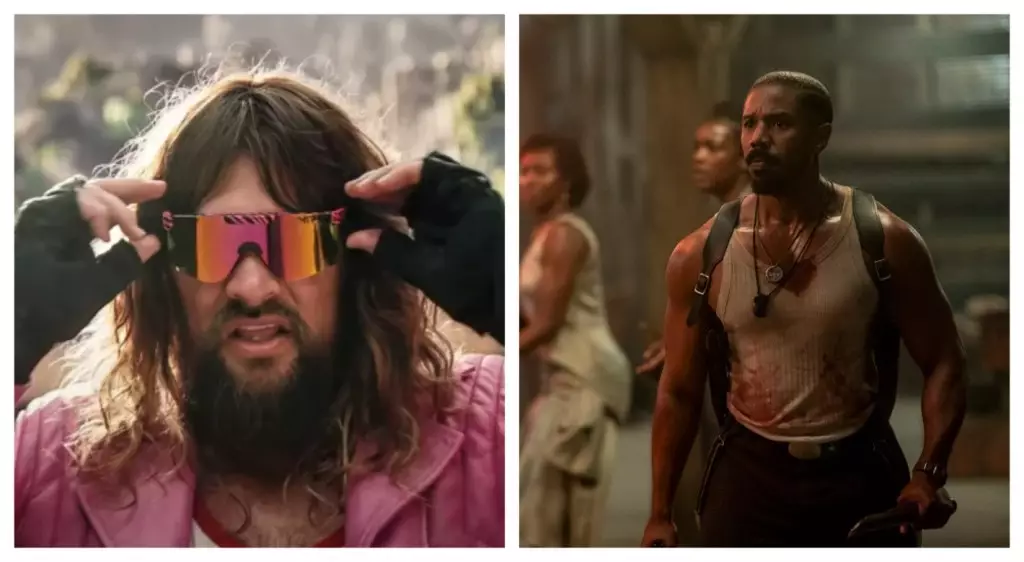In a remarkable twist, Hollywood has hit a high note, recapturing the attention of a younger generation—specifically, Gen Z. This week’s box office success stories, exemplified by the much-anticipated *Minecraft Movie* and the gripping original thriller *Sinners*, have heralded a renewed appetite for cinematic experiences. Surprisingly, these films are resonating strongly with audiences worldwide, and filmmakers are reaping the fruits of their labor as viewers flock to theaters. The excitement surrounding these releases reflects how short-lived Hollywood’s memory can be, especially considering the tumultuous environment just two years prior, when productions faced severe delays, strikes loomed, and streaming platforms began to dominate.
A Contrast to Past Challenges
Reflecting on Hollywood’s recent past, the specter of uncertainty loomed large. Two years ago, studio executives were scrambling under the weight of cancelations and an uncertain release schedule. Warner Bros. cunningly attempted to pivot with *Coyote vs Acme*, a peculiar nod to nostalgic cartoon characters. However, it struggled to break through the cultural noise generated by the dominant *Barbenheimer* phenomenon. The unexpected pairing of *Barbie* and *Oppenheimer* became a compelling box office duo, captivating critics and audiences alike, partly due to the endorsements from major figures like Tom Cruise and Martin Scorsese. It seemed that the original trailblazers of Hollywood, the out-of-the-box storytellers, were not merely an afterthought but headed back into the limelight.
The Financial Landscape and Risks Ahead
As the box office tallies around *Minecraft,* with projections nearing $800 million, and *Sinners,* which is steadily climbing, an essential question arises regarding their financial viability. Is Hollywood’s reliance on established franchises and gaming nostalgia a sustainable model? With the *Minecraft Movie* requiring an investment of $150 million—justifiable only through its established fanbase—the stakes are considerable. Meanwhile, the original thriller *Sinners*, which carries a hefty $90 million price tag, starkly illustrates the risks associated with producing original content. Historically, original films have often been viewed with skepticism, especially when compared to their franchise counterparts. The underlying fear persists—will audiences embrace new narratives, or does familiarity breed comfort in a floundering cinematic landscape?
Personalized Partnerships in Filmmaking
Adding complexity to the conversation is the unique contractual arrangement between *Sinners* star Michael B. Jordan and director Ryan Coogler. Their decision to negotiate a significant share of gross receipts and reclaiming ownership after 25 years speaks volumes about a shifting paradigm in Hollywood. This collaboration might signify a trend where creatives gain more control over their projects, pushing back against the traditional studio system that often undermines the value of original ideas. In a landscape that has been overly reliant on sequels and adaptations from existing properties, this bold move could rewrite the rules for filmmakers in Hollywood, advocating for fresh and innovative storytelling methods.
Brave New Players in Original Storytelling
This evolving relationship doesn’t stop with Warner Bros.—companies like Apple and Amazon, with their relatively few franchises, are stepping up the game by embracing original ideas. Apple’s investment in an untitled F1 racing film starring Brad Pitt is emblematic of their ambition to carve a niche in the original content market, stepping away from cookie-cutter productions. On the other hand, Warner Bros.’ anticipation of releasing a new film from visionary director Paul Thomas Anderson reignites nostalgia for thought-provoking cinema. Anderson’s affinity for original storytelling counters the current trend dominated by remakes and franchises, reminding viewers of Hollywood’s capacity for artistic integrity that transcends commercial pursuits.
A Retrospective on Original Storytelling
The brilliance of Hollywood’s legacy lies in its ability to craft unique narratives from diverse sources. Historical masterpieces like *Casablanca*, *Bonnie & Clyde*, and *American Graffiti* were born out of necessity, ambition, and sheer originality. Their narratives emerged not from established franchises, but from a deep well of inspiration—be it dramatic literature, historical events, or personal memories. This juxtaposition against contemporary film, where sequels often reign supreme, serves as a poignant reminder that originality has always been the bedrock of cinematic success.
Through a critical lens, one could argue that while franchises have their place, they can’t replace the allure of a well-crafted original story. The enthusiasm surrounding *Minecraft* and *Sinners* indicates a potential shift where creativity, ownership, and originality might just be the holy trifecta that Hollywood needs to sustain itself in an ever-evolving entertainment landscape. The path ahead could very well reshape the future of filmmaking, emphasizing that sometimes, the best way to move forward is to boldly revisit the roots of storytelling itself.

